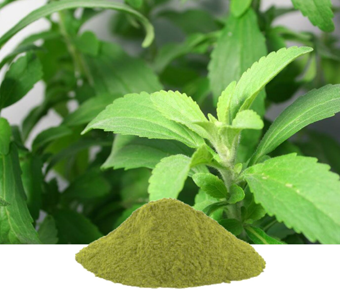Stevia Rebaudiana Extract

Botanical Name : Stevia Rebaudiana Extract
Common Name : Stevia Extract
Assay : 20% -40% Saponins by Gravimetry 90-95% Steviosides by HPLC
Product Usage : Natural Sweetner
Description :
The greatest healthy sugar substitute, Stevia Rebaudiana Extract, is made from the leaves of the Stevia plant and has fewer calories than other natural sweeteners. The most active component in stevia rebaudiana extract is steviol glycosides, which has 150 times more sweetness than sugar. The Gaurani people of South America have long used Stevia Rebaudiana, which they refer to as a Sweet Herb. While Japan has also been using Stevia as a sweetener for decades due to scientists first describing Stevia as a sweetener in 1899, the leaves of Stevia have also been used for hundreds of years in Brazil and Paraguay to sweeten tea and medicine.
Stevia contains the lasting sweet flavors of its two primary sweet components, Stevioside and Rebaudioside. Stevia is currently accepted on a global scale, including by the European Food Safety Authority, Joint Expert Committee of the WHO, FSSAI in India, and others due to its low calorie sweetness that aids in weight management.
Stevia's low GI and assistance in activating the pancreatic beta cells reduces the risk of blood sugar rises. According to the study, steviol glycosides are poorly absorbed by the body and completely bypass the upper gastrointestinal tract. Steviol is created when steviol glycosides enter the colon. The liver next processes steviol before it is eliminated in the urine. As a result, during metabolism, Stevia does not build up in the body. Stevia has a poor digestive tract absorption rate owing to this. Low in calories and does not cause an increase in insulin or blood sugar levels after digestion. When consumed, stevia helps lower blood pressure, cleanses the blood, and enhances the function of the hormone insulin.

